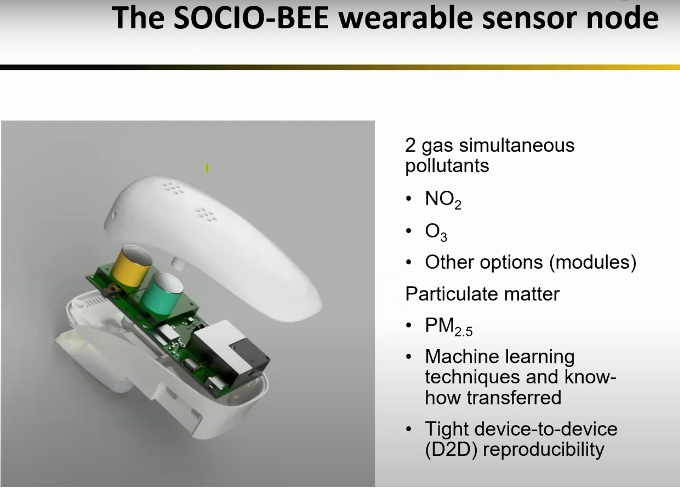SOCIO-BEE Project Comes to an End Successfully: Citizens, Science and Technology United for Cleaner Air
After more than three years of collaborative work among institutions, companies, and citizens, the SOCIO-BEE project (Wearables and Drones for CIty Socio-Environmental Observations and BEhavioral ChangE), funded by the Horizon Europe programme, has officially come to a successful close. The project’s core mission was to empower citizens to actively monitor urban air quality through the use of low-cost wearable sensors, within a structured citizen science framework.
SOCIO-BEE brought together technology, public engagement, and data science to raise environmental awareness, extend the spatial reach of air quality measurements, and generate actionable data to support evidence-based policy-making.

Learn more about the project: https://socio-bee.eu
Our Contribution: Bettair’s Wearable Air Quality Sensors
As a key technology partner, Bettair Cities designed and developed a wearable sensor node (WSN) capable of measuring NO₂, O₃, and PM2.5, with Bluetooth and WIFI connectivity. These lightweight and low-power devices were used in real-world pilot campaigns in Ancona (Italy), Maroussi (Greece), and Zaragoza (Spain), targeting seniors, commuters, and students respectively.
This innovation allowed citizens to collect high-resolution air quality data while moving through the city, complementing traditional monitoring stations and improving the granularity of environmental insights.

Scientific Validation: Accurate, Reliable, and Actionable
The results, published in the journal Sensors (DOI: 10.3390/s25123739), confirm the effectiveness of the SOCIO-BEE approach:
- In Ancona, PM2.5 measurements from Bettair’s sensors showed strong correlation with official reference stations (R² = 0.75) and average precision of ±3.3 µg/m³.
- In Maroussi and Zaragoza, where no reference stations were available, clustering analysis revealed consistent, high-quality data, confirming the internal reliability of the citizen measurements.
- Over 70% of participants reported positive experiences in terms of usability, engagement, and accessibility.
Co-Creation and Citizen Empowerment
SOCIO-BEE’s participatory methodology—based on the metaphor of a beehive—assigned different roles to citizens (worker bees, queen bees, drones) and facilitated co-creation, training, and data collection through an integrated mobile and web platform.
At Bettair, we contributed not only to sensor design and validation, but also actively supported the execution of the pilot campaigns and the analysis of the collected data.
From Citizens to Policy: Impact Beyond Technology
Municipalities involved in the project recognized the value of citizen-collected data in identifying pollution hotspots, informing urban planning, and guiding public health strategies. SOCIO-BEE shows that with accessible technology and well-designed campaigns, citizen science can deliver high-quality data that drives real policy change.
We at Bettair Cities are proud to have contributed to the SOCIO-BEE project — a meaningful step towards healthier, smarter, and more participatory cities.
#SOCIOBEE #CitizenScience #AirQuality #SmartCities #BettairCities #HorizonEurope #EnvironmentalMonitoring #IoT
